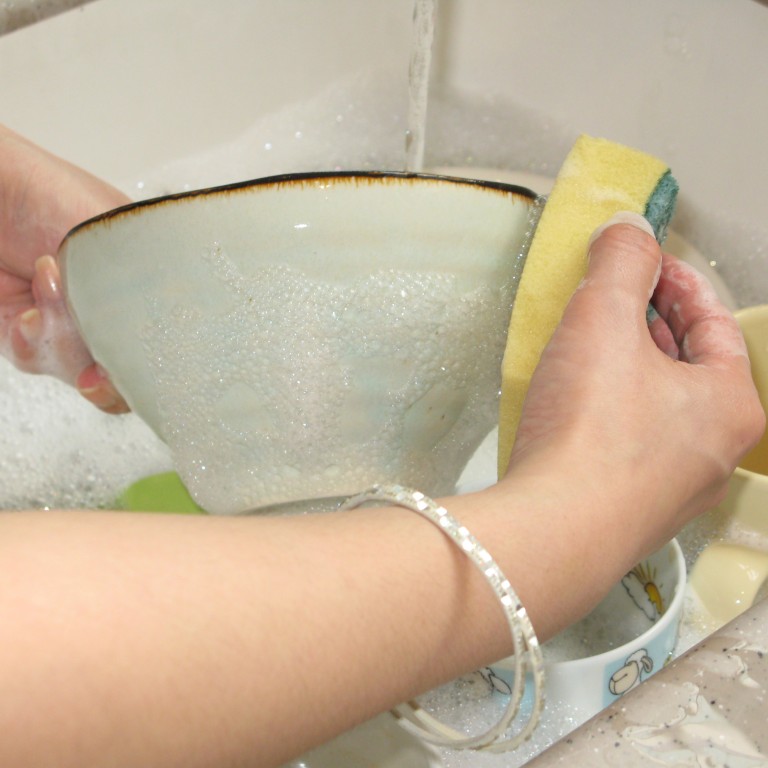
How to accept that sink of unwashed dishes and get on with life
Practising mindfulness can help couples 'be in the moment' with each other and accept their reactions to the other's actions without passing judgment
When your spouse leaves dirty laundry two feet from the hamper, the last thing that comes to mind is meditating on your feelings. But experts say being present in the moment - or having a "mindful" marriage - can translate to happier couples.
We first noticed the mention of mindful marriage when Jennifer Garner and fellow actor and husband Ben Affleck said years ago they aimed for a mindful matrimony. Theirs has since soured - they announced they're divorcing recently after 10 years. Others referencing a thoughtful relationship include Gwyneth Paltrow and Chris Martin, who announced their "conscious uncoupling" in 2014.
Mindfulness might not have led to a perfect ending for those couples, but therapists say it helps so many marriages that some are building their practice around it. Couples counsellor Maxcia Lizarraga, based in the US state of Tennessee, even credits it for the success of her own 44-year marriage.
"Being mindful is about being present in the moment without an agenda to change that moment," says clinical psychologist Darrah Westrup from Colorado, co-author of . "You're aware of this moment and watching it."
This is helpful for individuals as well as couples - anyone can benefit from wrangling his or her thoughts more positively. And in a relationship, this can lead to more patience and compassion.
Westrup says she has increasingly focused her practice on this concept.

Key to understanding mindfulness, Westrup says, is that you cannot have an agenda. Being present in the moment does not mean keeping score on small details - for example, taking note of when your partner doesn't do the dishes. Being more mindful starts with acknowledging it isn't about changing your partner.
Couples also make the mistake of viewing mindfulness as a quick fix that will make something upsetting less upsetting, Westrup says.
"People will talk about accepting or being present, but behind it is this [misconception] that if I do this, then I'm not going to be so troubled by the present," she says.
Instead, you need to take the practice to the next level: take time to centre yourself in the moment, noting where you are and how you're feeling - without judgment.
Accept your reactions to your partner. If there is laundry on the floor, acknowledge the emotion of frustration, for example, as well as your reaction.

Lizarraga, who centres her work on couples and leads mindful marriage workshops, says she advises clients to take a step back during a difficult moment and acknowledge both their emotions as well as the self they hope to be in a relationship.
"Kindness is the glue that can hold a marriage together," she says.
Harnessing your thoughts can be as straightforward as noting the thought, "My spouse is such a nag", and altering it to, "I'm having that thought about my spouse again". Take a moment to think of the type of spouse and person you would like to be, Lizarraga suggests, and how that can manifest in the moment.
"Whatever you focus on grows," be it positive or negative, says Lizarraga.
Corey Allan, a marriage and family therapist based in Dallas, says mindfulness can also combat the routine of marriage.
"Months, years later, you get into this idea of we're roommates, we just do life together, and there's no connection, the spark's gone," he says. "I sum up the whole idea of mindfulness as intentionality."
But in the whirlwind of their lives, when getting the kids off to school is a morning miracle, how can couples train themselves to take moments for mindfulness?
A few moments after the alarm buzzes can be a first step, Lizarraga says.
"It starts off in the morning, saying good morning, how did you sleep, how was your night?" she says. "There's that sense of connectedness: 'Oh, my partner cares how I slept'."
In marriage, those questions - "What do you think?" "How do you feel?" - are equally important but can be eclipsed in the day-to-day tasks of, say, buying groceries.
Mindfulness can remind couples to ask those kinds of questions.
